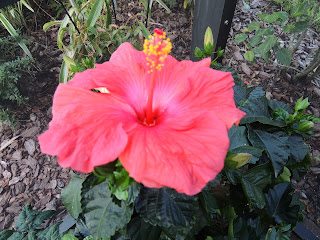Kiddie cups: These little sips are daily practices. Work
out, maybe. Meditation. Breathing exercises. Yoga nidra/NSDR. That twenty minutes
after work and before the dinner rush wherein you sneak- read a few pages of a
book. Journaling. Singing when you’re alone in the car. Spending ten minutes
outside in the early morning sunshine admiring the trees and plants and
flowers. The daily kiddie cups may be small, but they keep the well topped up
and the workings clear of debris. There’s a saying among hikers: It’s the water
in your body that keeps you alive, not the water in your canteen. Refilling the
creative well feels very much the same. In the throes of stressful daily live,
whether there’s a deadline or other pressures, most of us can’t afford anything
more than a few short, stolen moments to pour a few ounces back into ourselves.
A few ounces at a time won’t keep us topped up, but they will sure slow the
draw down.
Medium-ish: These rehydration investments are bigger
investments, whether in time, effort, or cash. A class. An entire day alone
with no one else setting the agenda. A solo trip to an art gallery or a museum
or a bookstore. A day of enjoyable outdoor activities. Sailing, hiking, biking,
exploring, whatever. It can be short writing retreats or a local conference.
The point of the medium-ish creative well refill project is to tip a lot more
into the well to bring the levels markedly up. If you’ve watched any ancient
Egyptian archeology shows in the past decade, picture the Nile measuring
systems the Egyptians built to keep track of flooding. They knew that if the
Nile floods didn’t hit a certain height, it meant famine and they could plan.
We’re using our medium drinks to bring up the level of the Nile. We don’t want creative
famine. So, we need a cadence of regular pours to inch that level back up above
the uh oh mark.
Grand gesture: These are huge, major investments in well refilling. They’re great emergency measures akin to getting an IV in the ED. The grand gesture can be life and soul saving after major burn out. Everyone’s grand gestures will look different. It could be a major conference (San Diego Comicon, DragonCon, etc.) It could be a longer-term writing retreat or even an artist-in-residence situation. The grand gesture is meant to be a big adventure, preferably undertaken solo. You shouldn’t have to share your Big Gulp. Not when you need it. It’s supposed to shake you up. It’s supposed to be faintly scary. Refilling the well like this should feel a little wild and uncontrollable as if you might be swept out to sea by the force of the flood. I mean, okay. My analogies are breaking down and getting tangled up. In my case, it was a ten-day trip to Ireland. Ten days of beginner mind because everything was new and bright and shiny and well-filling. Your grand gesture may, like mine, be a once in a lifetime event. That’s fine. I just hold that everyone trying to refill a creative well should indulge in a grand gesture at least once in life, understanding that grand gestures may need to be scaled to accommodate budgets, schedules, and envious spouses.










